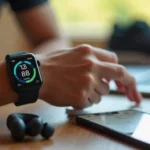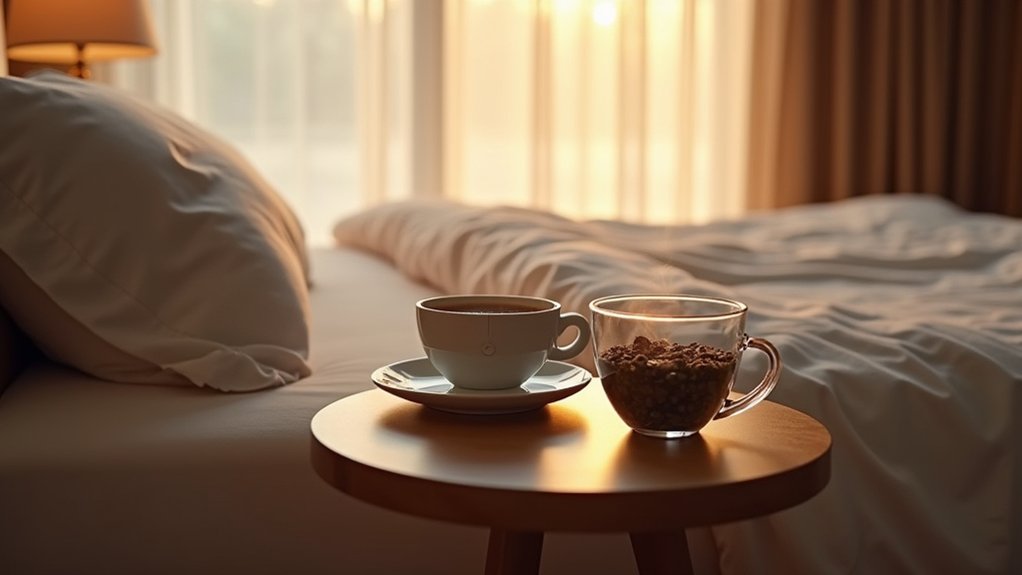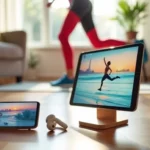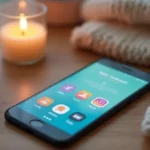
What Is wearable device integration, and why is it important?
Jump into the world of wearable device integration to discover how seamless connectivity transforms health and productivity—unlocking benefits you never expected.

Understanding sleep quality is essential for maintaining good health, and using the best sleep trackers can help you achieve restful nights. Sleep trackers provide valuable insights into your sleep patterns, breathing, and heart rate, allowing you to make informed adjustments for better rest. With many options available, finding the best sleep trackers that match your lifestyle and needs ensures you get the most accurate data to improve your sleep quality. Exploring the features of the best sleep trackers can guide you toward a healthier, more rejuvenating night’s sleep.

Featured sleep trackers come in various forms, including popular wearable devices like smartwatches and rings, as well as non-wearable options such as mattress and under-mattress sensors.
These featured sleep trackers provide valuable insights into sleep patterns, helping users improve their rest quality.
Choosing the right featured sleep tracker depends on individual preferences and needs, making it easier to find the perfect solution for better sleep monitoring.
Wearable sleep trackers are among the most popular tools for monitoring your sleep patterns.
These wearable sleep trackers, like the Oura Ring Gen 4, Whoop 4.0, and Apple Watch Series 10, provide detailed sleep stage analysis and health metrics that help you understand your sleep better.
Using wearable sleep trackers allows you to gain valuable insights and improve your overall sleep quality with ease and convenience.
Non-wearable sleep trackers provide a convenient way to monitor your sleep without wearing any device on your body.
These non-wearable sleep trackers, like the Withings Sleep Tracking Mat and Google Nest Hub, use sensors placed under your mattress or nearby to detect movement, breathing, and heart rate throughout the night.
Sleep tracking rings are becoming a popular choice for those looking to monitor their sleep without the bulk of traditional devices.
These sleep tracking rings offer a discreet and comfortable way to keep an eye on sleep patterns. For example, the Oura Ring 4 uses advanced sensors to accurately track sleep stages, heart rate, and temperature.
Mattress and under-mattress trackers are a popular choice for those looking to monitor their sleep easily and comfortably.
These mattress trackers, like the Withings Sleep Mat and Eight Sleep Pod Cover, work by placing sensors beneath your mattress to track movement, heart rate, and breathing patterns throughout the night.
Using mattress trackers provides detailed sleep data and scores, helping users understand and improve their sleep quality without the need to wear any devices.
With mattress trackers, you can effortlessly keep an eye on your sleep health every night.
Sleep trackers work by collecting data such as movement, heart rate, and blood oxygen levels to estimate sleep stages and overall sleep quality.
Using a sleep tracker app can help you better understand your sleep patterns by providing insights based on this data.
When choosing a sleep tracker, it’s important to know common sleep tracking terminology to interpret the results accurately.
Keep in mind that the accuracy of a sleep tracker may vary and sometimes differs from clinical sleep studies.
Sleep tracking terminology is essential for anyone interested in improving their rest using sleep tracking apps. Understanding how sleep trackers work starts with knowing key terms like heart rate (HR), movement sensors, and the different sleep stages, including light, deep, and REM sleep.
Sleep tracking apps often provide a sleep score that summarizes your overall sleep quality. Additionally, these apps monitor oxygen saturation (SpO2) to check breathing patterns and detect issues like apnea.
Because sleep trackers use different sensors, the types of sleep data collected can vary but usually include movement, heart rate, breathing patterns, and blood oxygen levels.
This sleep data collected helps to estimate important sleep stages like light, deep, and REM sleep. Additionally, some sleep trackers gather information on body temperature and ambient conditions, giving a full picture of sleep quality and the physiological changes that happen during the night.
How accurately do consumer sleep trackers capture the complexities of sleep?
Sleep trackers use sensors to monitor movement, heart rate, and sometimes oxygen levels, interpreting these signals with proprietary algorithms.
However, consumer sleep trackers often lack the precision of clinical polysomnography. Many sleep trackers mistake periods of inactivity for actual sleep and struggle to differentiate sleep stages accurately, which can affect their reliability.
Understanding the accuracy of sleep trackers is important for users seeking insights into their sleep patterns without causing unnecessary anxiety.
Choosing the right sleep tracker is essential for improving your sleep quality. When selecting a sleep tracker, consider factors like comfort, battery life, and how well the device works with your smartphone.
Many sleep tracker options are designed specifically for iPhone or Android users, allowing smooth integration with your preferred technology. By understanding these key points, you can pick a sleep tracker that fits your lifestyle and helps you monitor your sleep effectively.
When choosing the best sleep tracker, it’s important to consider comfort, battery life, and compatibility. A comfortable sleep tracker encourages regular use, making it easier to track your sleep patterns accurately.
Long battery life in a sleep tracker means fewer interruptions and less hassle charging the device. Additionally, compatibility with your smartphone or sleep tracking apps ensures smooth syncing and easy access to your sleep data.
Picking a sleep tracker that balances comfort, battery life, and compatibility will help you get the most reliable results and improve your overall sleep monitoring experience.
When choosing the best sleep tracker for iPhone users, comfort, battery life, and compatibility are essential factors to consider.
The best sleep tracker for iPhone users is designed to work seamlessly with iOS, ensuring smooth syncing and enhanced app functionality.
For those looking for top performance, the Apple Watch Series 10 stands out as the best sleep tracker for iPhone users, offering advanced sleep metrics and detailed health insights within the Apple ecosystem.
How can Android users find the best sleep tracker for their needs?
The Google Pixel Watch 3 is one of the best sleep trackers for Android users, offering accurate sleep stage tracking and blood oxygen monitoring powered by Fitbit’s trusted algorithms.
This top sleep tracker for Android users provides easy-to-understand data and includes a Fitbit Premium subscription for more detailed sleep insights.
If you’re looking for the best sleep tracker for Android users, the Google Pixel Watch 3 combines functionality and sleek design to help you improve your sleep quality.
Choosing the best sleep tracker is essential for anyone looking to improve their sleep quality. Whether you prefer wearable sleep trackers like rings and watches or non-wearable options such as mattress sensors, each type of sleep tracker offers unique benefits for monitoring your rest. When selecting the best sleep tracker, consider important factors like comfort, battery life, and compatibility with your devices. By finding the right sleep tracker that suits your lifestyle, you can gain valuable insights and take meaningful steps toward better sleep health.

Jump into the world of wearable device integration to discover how seamless connectivity transforms health and productivity—unlocking benefits you never expected.

Leading the way in 2025, these top medication management apps offer innovative features to simplify your routine—but which one truly stands out? Find out now.

Optimize your home workouts with these 4 top apps offering unique features tailored to every fitness level—discover which one fits you best.

Discover 5 dynamic therapy apps designed to transform your mental health—each offering unique tools and support you won’t want to miss.

Wondering how to transform leftover foods into delicious meals? Discover three innovative apps that make reducing waste effortless and enjoyable.

Want to streamline your receipt management? We explore 5 apps that will transform how you organize and track expenses effortlessly.